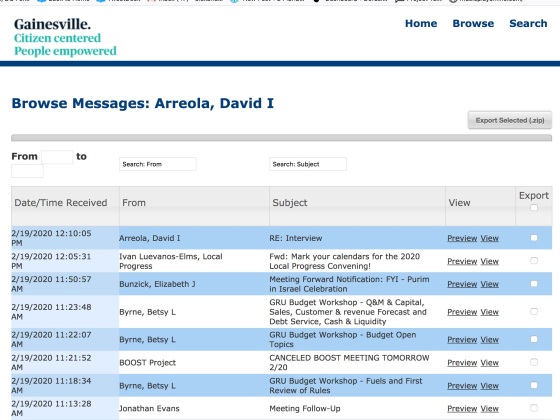
There’s much to be learned from the experience of the city Gainesville, Florida, where a commissioners voted in 2014 to publish the public’s email correspondence with them and the mayor online.
More than five years on, the city government and its residents have are ground zero for an tumultuous experiment in hyper-transparent government in the 21st century, as Brad Harper reports for the Montgomery Advertiser.
It’s hard not to read this story and immediately see a core flaw in the design of this digital governance system: the city government is violating the public’s expectation of privacy by publishing email online.
“Smart cities” will look foolish if they adopt hyper-transparent government without first ensuring the public they serve understands whether their interactions with city government will be records and published online.
Unexpected sunshine will also dissolve public trust if there’s a big gap between the public’s expectations of privacy and the radical transparency that comes from publishing the emails residents send to agencies online.
Residents should be offered multiple digital options for interacting with governments. In addition to exercising their rights to freedom of expression, assembly and petition on the phone, in written communications with a given government, or in person at hearing or town halls, city (and state) governments should break down three broad categories of inquiries into different channels:
Emergency Requests: Emergency calls go to 911 from all other channels. Calls to 911 are recorded but private by default. Calls should not be disclosed online without human review.
Service Requests: Non-emergency requests should go 311, through a city call center or through 311 system. Open data with 311 requests is public by default and are disclosed online in real-time.
Information Requests: People looking for information should be able to find a city website through a Web search or social media. A city.gov should use a /open page that includes open data, news, contact information for agencies and public information officers, and a virtual agent or “chat bot” to guide their search.
If proactive disclosures aren’t sufficient, then there should be way to make Freedom of Information Act requests under the law if the information people seek is not online. But public correspondence with agencies should be private by default.


